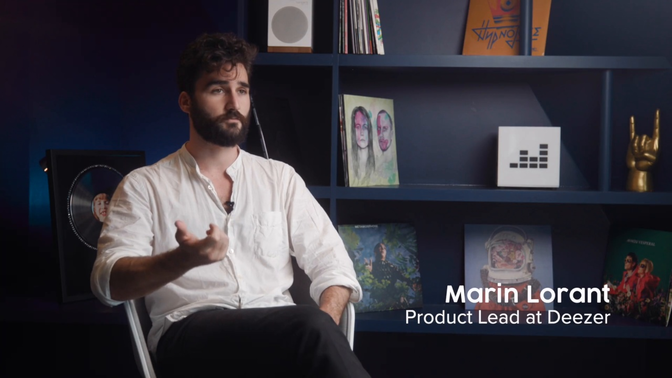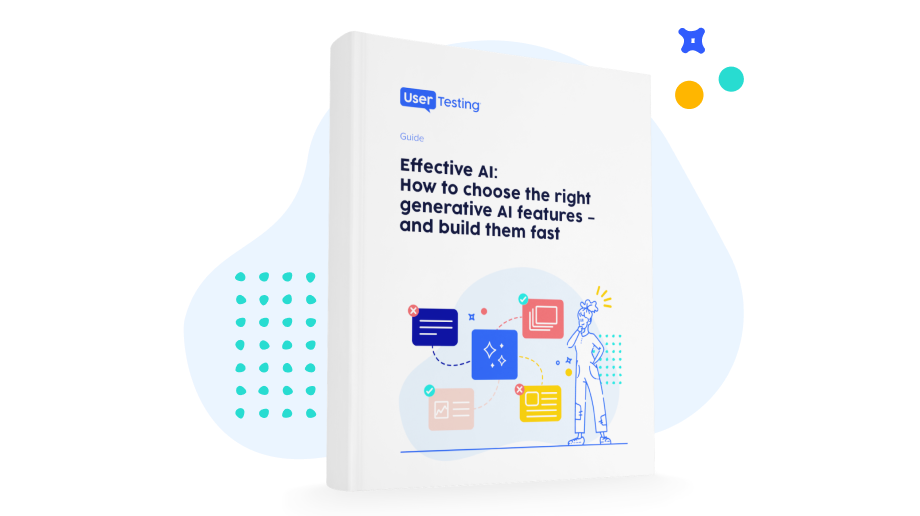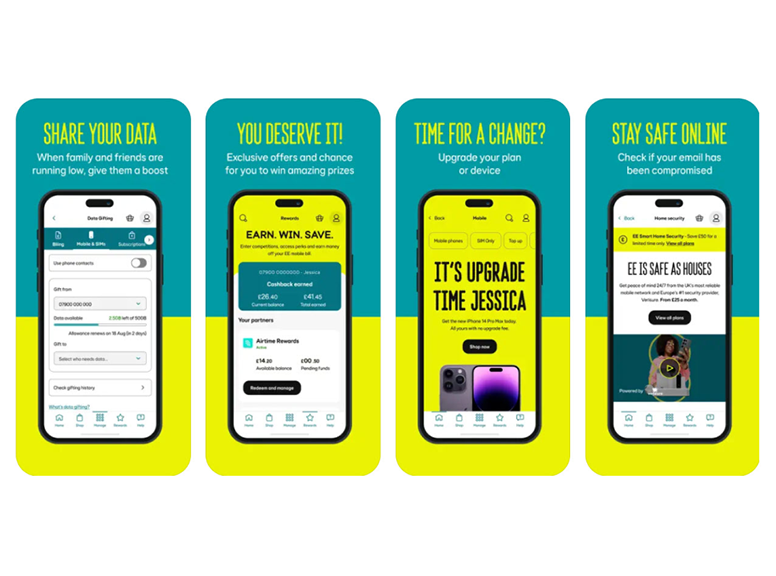
Media & entertainment
Technology
Deezer + UserTesting
Check out how Deezer music streaming service developed the Flow Moods AI function, generating mood-based playlists for millions


About the company
Deezer music streaming service is a French platform that allows users to listen to music and podcasts online or offline across multiple devices.

Get started now
Contact Sales- 35%Amount listened, higher than non-Flow users
 Development of a feature that customer love
Development of a feature that customer love Hundreds of thousands adopt the new feature
Hundreds of thousands adopt the new feature
Music streaming platforms, including Deezer music streaming service, have similar catalogs, interfaces, and even usage patterns among their subscribers. A main differentiator for Deezer is the Flow feature—an intelligent, personalized mixer, adapting to real-time user moods and interactions—that millions of users access on a regular basis.
A large button on top of the homepage offers one-click access to generate an infinite playlist, mixing songs that users like with fun discoveries based on their preferences. This solved the age-old question for users of ‘What do I listen to today?’ with a quick, personalized experience.
But Deezer’s Product Team wanted to innovate further with artificial intelligence (AI). For example, when a user clicks on Flow at 9 pm, is she looking for a playlist to relax and cook dinner or welcome her friends over for a party? To increase Flow’s value, Deezer needed it to evolve into an even more personalized feature, based on emotions.
Deezer’s innovative teams process research in many ways. The company gathers feedback from the App Store, its community website, and its customer support portal. They send Qualtrics questionnaires to subscribers to understand preferences within features, but also perceptions of the overall experience.
As part of their plan to evaluate ways they could enhance Flow, Deezer ran an exploratory study on the music consumption of casual listeners, who are heavy Flow users. They used UserTesting to interview Deezer users from all over the world. The organization discovered that while heavy listeners choose music based on genres and artists, casual listeners select their music based on their moods.

After presenting these findings to the company’s executives, the teams got to work. Data scientists explored ways to identify and label emotions for 90 million songs. The User Research Team investigated how to identify the emotions of users. The resulting function that the company created allows Deezer’s algorithm to match music options with the listeners’ emotions.
Deezer tested Figma mobile prototypes with UserTesting. They recruited, moderated, recorded, and analyzed insights from contributors in the US, Mexico, Brazil, the UK, France, and Germany. After setting up a prototype test in UserTesting, product designers made live updates to their prototypes in response to early insights, without having to modify the original test configuration in UserTesting. This allowed Deezer to quickly perform iterative testing.
Which designs looked most appealing? How many choices did people prefer seeing? Which moods are most relevant and appealing to people? Once they had each feature the way they wanted it, Deezer ran additional rounds of UserTesting on the desktop version, which they had adapted from the mobile experience.
Within the first month of its release, one million listeners began to use Flow Moods. The feature was a hit on social media and the press loved it as well!
And Flow Moods users return for more—listeners who use Flow Moods are more likely to reconnect than listeners who don’t and they listen to more music than non-users of the feature.
Today, the Deezer music streaming service is using their understanding of this feature’s popularity to continue delivering experiences that listeners love, as the company understands that innovation is a key aspect in increasing customer loyalty.
People love Flow. They actually use it a lot. And they love the simplicity of it. But sometimes Flow needs a bit more guidance in the way it behaves - and that’s where UserTesting contributors helped us understand how to refine the feature.Laurent Pinjon Head of Design Operations, Deezer
We work with UserTesting to test our product with existing and potential customers in all our key markets, covering France, the UK, the US, Brazil, and Germany.Tom Abourmad User Researcher, Deezer

How to choose and develop the right AI features
Get actionable steps to help you get your AI development right on the first try.








